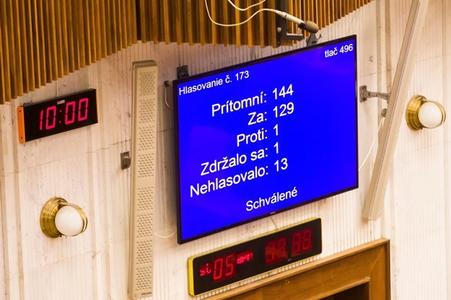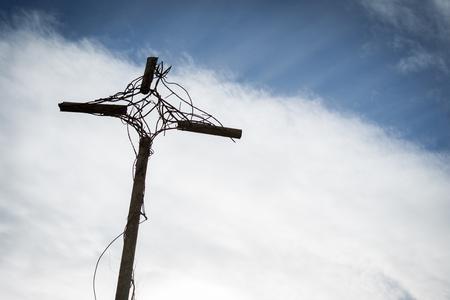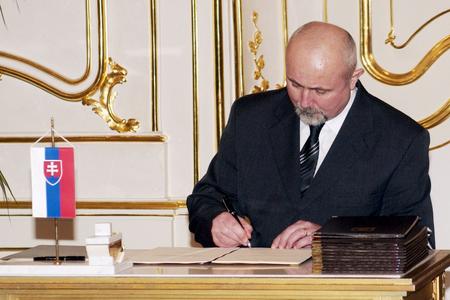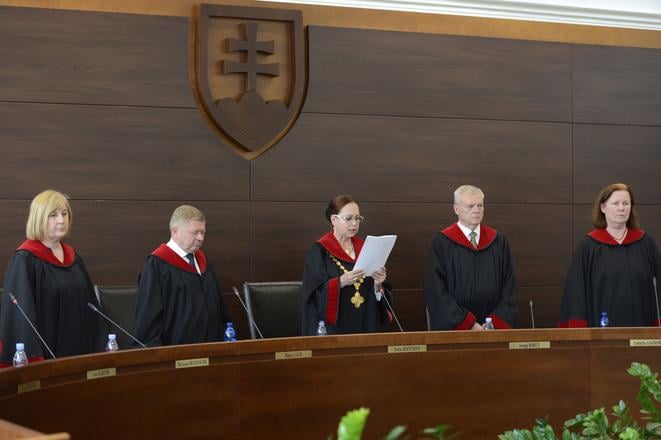The controversial amnesties granted by former prime minister Vladimír Mečiar will be cancelled after 19 years. The Constitutional Court confirmed at its May 31 private session that it has rescinded the immunity from prosecution of actions linked to the 1990s abduction to Austria of the son of former president Michal Kováč.
The cancellation of the amnesties had already been approved by MPs in early April, the Sme daily reported on its website.
The court has officially confirmed its decision. Eight judges supported the ruling, while two judges, Milan Ľalík and Peter Brňák, opposed it. Three of the eight judges attached a concurring opinion, agreeing with the overall ruling but offering a different reason for it, the Sme daily reported on its website.
“We are very glad that the Constitutional Court confirmed that if a state body is suspected of committing a crime against its citizens, the culprits cannot enjoy immunity from prosecution forever, especially if they try to abuse the amnesties,” Peter Wilfling of the legal think tank Via Iuris said to Sme.
Although many years have passed since the crime occurred, the fact that the controversial amnesties will be scrapped and the culprits of the 1995 abduction of the then-president’s son to Austria will face the courts is an important signal for all of Slovakia, he added.

Scrapping the amnesties means that the proceedings concerning the abduction of Michal Kováč, Jr. may be reopened in the courts. The file containing the lawsuit has been in the archives of the district court in Bratislava, as the file could not be touched after the amnesties had been granted.
In 2000, Prosecutor Michal Serbin submitted a proposal to charge 13 people, including former head of the SIS intelligence service Ivan Lexa and former SIS agents Gejza Valjent, Milan Lovich and Michal Hrbáček, as well as former police officer Ľuboš Kosík, Sme wrote. Kosík is currently living in Mali.

The Constitutional Court was assigned to verify whether the cancellation of amnesties is constitutional. If the court had found it unconstitutional, the amnesties would have remained indefinitely. Conversely, if the court had not issued its decision before the 60-day period expired, or if too few judges supported the ruling, then the proceeding would have stopped and the amnesties scrapped automatically, Sme reported.

Doubts existed as to whether the Constitutional Court would approve the scrapping, as two of the justices claimed they had biases. The court, however, did not exclude them from the case.
One of the judges was Ladislav Orosz, former MP for the Party of Democratic Left (SDĽ), who had tried in the past to compel parliament to abolish the amnesties. The other was Brňák, who served as an MP for HZDS, the party Mečiar had led, and who disagreed with the cancellation in the past.
Over the past years, there have been several unsuccessful attempts to scrap the amnesties. A change came at the beginning of this year, when cinemas began screening the film Únos (The Kidnapping), which described the controversial events. A Focus pollster also published a survey that showed 63 percent of its respondents were in favor of scrapping the amnesties.



 (source: TASR)
(source: TASR)